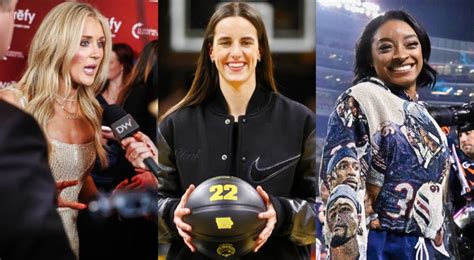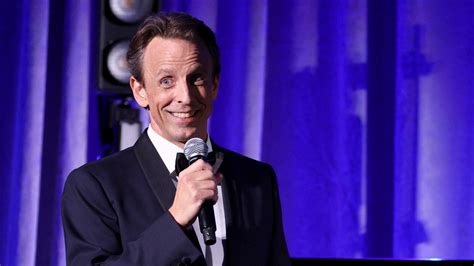
Simone Biles publicly criticized Riley Gaines after Gaines made comments that Biles described as “transphobic.” Biles urged Gaines to use her platform to uplift the transgender community instead of spreading what Biles characterized as “truly sick” views.
Olympic gymnast Simone Biles has publicly rebuked former NCAA swimmer Riley Gaines for her views on transgender athletes, specifically those participating in women’s sports. Biles, widely regarded as one of the greatest gymnasts of all time, took to social media to express her disappointment and call on Gaines to use her platform to promote inclusivity rather than what she described as harmful rhetoric. The exchange highlights the ongoing and often heated debate surrounding transgender athletes’ participation in sports, a topic that has garnered significant attention and sparked controversy across various platforms.
The controversy erupted following Gaines’ continued vocal opposition to transgender women competing in women’s sports. Gaines, a vocal advocate for single-sex sports, has argued that allowing transgender women to compete against cisgender women creates an unfair competitive environment and undermines the integrity of women’s sports. She has appeared on numerous media outlets and testified before legislative bodies to advocate for policies that restrict transgender women’s participation.
Biles, in her response, directly addressed Gaines, stating that she believes Gaines should leverage her platform to uplift the transgender community. “Really tired of this,” Biles posted on X (formerly Twitter). “I support you, but I don’t support your views on trans athletes. As someone who grew up in the sport with trans athletes, I know firsthand that their participation does not threaten women’s sports. They are athletes just like everyone else, and they deserve the same opportunities to compete and excel.” Biles continued, “There are more important issues in the world than this. Why are you so focused on tearing down a community that is already marginalized? Use your platform to uplift, not to spread hate.”
Gaines quickly responded to Biles’ criticism, defending her stance and reiterating her concerns about fairness in women’s sports. She argued that her position is not rooted in hate or discrimination but rather in a desire to protect the rights and opportunities of cisgender female athletes. “Simone, I appreciate your support, but I fundamentally disagree with your position,” Gaines stated. “This isn’t about hate. It’s about fairness. It’s about ensuring that women have a level playing field and are not disadvantaged by biological males competing in their sports.” Gaines added that she believes allowing transgender women to compete in women’s sports erodes the achievements and opportunities of cisgender women.
The exchange between Biles and Gaines quickly gained traction on social media, sparking a flurry of reactions from athletes, activists, and commentators on both sides of the issue. Many expressed support for Biles’ inclusive stance and praised her for using her platform to advocate for the transgender community. Others sided with Gaines, applauding her for speaking out on what they see as a threat to women’s sports. The debate underscores the complexity and sensitivity of the issue, as well as the deep divisions that exist within the sporting community and beyond.
This isn’t the first time Biles has used her platform to advocate for social justice. The Olympic champion has been a vocal supporter of various causes, including mental health awareness, racial equality, and LGBTQ+ rights. She has spoken openly about her own struggles with mental health and has used her platform to encourage others to seek help and break the stigma surrounding mental illness. Similarly, Gaines has been a consistent voice on issues related to fairness in women’s sports, advocating for policies she believes will protect the integrity of female competition.
The disagreement between Biles and Gaines also highlights the broader context of the transgender athlete debate. The issue has become increasingly politicized, with conservative lawmakers introducing legislation in numerous states aimed at restricting transgender athletes’ participation in sports. These laws have been met with strong opposition from LGBTQ+ advocates, who argue that they are discriminatory and harmful to transgender youth. The debate also raises complex questions about biology, fairness, and inclusion, with no easy answers.
The International Olympic Committee (IOC) has issued guidelines on transgender athletes’ participation in the Olympics, but these guidelines have been criticized by both sides of the issue. Some argue that the IOC guidelines do not go far enough to protect women’s sports, while others contend that they are still too restrictive and discriminatory. The ongoing debate underscores the need for thoughtful and inclusive policies that balance the rights and needs of all athletes.
The incident serves as a reminder of the power of athletes’ voices in shaping public discourse and influencing social change. Biles’ and Gaines’ willingness to speak out on this controversial issue has brought attention to the complexities of transgender inclusion in sports and sparked important conversations about fairness, equality, and respect. The dialogue is crucial for fostering a more inclusive and equitable sporting environment for all athletes, regardless of their gender identity.
The conversation also extends to other notable figures who have weighed in on the transgender athlete debate. Caitlyn Jenner, a former Olympic gold medalist, has expressed views that align with Gaines, arguing for separate sporting categories to maintain fairness. Meanwhile, other athletes such as Megan Rapinoe have been vocal advocates for transgender inclusion, emphasizing the importance of welcoming transgender athletes into sports.
The Biles-Gaines exchange is a microcosm of the larger societal debate, and its resolution will require ongoing dialogue, empathy, and a commitment to finding solutions that are both fair and inclusive. The issue is not simply about sports; it’s about fundamental human rights and the right to participate fully in society. It requires navigating complex scientific, ethical, and social considerations.
The impact of this exchange reaches beyond social media. It influences policy discussions, affects the experiences of transgender athletes, and shapes public perceptions. It highlights the critical need for education and understanding, as well as the importance of creating spaces where diverse perspectives can be shared and considered respectfully.
The future of sports, and society as a whole, depends on the ability to address these challenges with compassion and a commitment to creating a more inclusive and equitable world. The debate underscores the importance of continued advocacy, research, and education to inform policy and promote understanding.
Ultimately, the exchange between Simone Biles and Riley Gaines serves as a powerful reminder of the ongoing struggle for transgender equality and the need for continued dialogue and advocacy. It highlights the importance of listening to diverse voices and working together to create a world where all individuals can participate fully in society, regardless of their gender identity.
FAQ Section:
1. What was the main point of contention between Simone Biles and Riley Gaines?
The primary disagreement centered on Riley Gaines’ views on transgender athletes participating in women’s sports. Gaines has been a vocal opponent of transgender women competing against cisgender women, arguing it creates an unfair competitive environment. Simone Biles publicly criticized these views, urging Gaines to use her platform to uplift the transgender community instead of spreading what Biles characterized as “transphobic” rhetoric. Biles stated that she has grown up with transgender athletes and supports their inclusion.
2. What specific arguments did Riley Gaines make regarding transgender athletes in women’s sports?
Gaines argues that allowing transgender women to compete in women’s sports undermines the integrity of women’s sports and creates an unfair competitive advantage. She contends that biological differences give transgender women an inherent advantage over cisgender women, thereby eroding the opportunities and achievements of cisgender female athletes. She believes in maintaining single-sex sports to ensure a level playing field.
3. How did Simone Biles respond to Riley Gaines’ arguments?
Simone Biles expressed her disagreement with Gaines’ views, stating that she doesn’t support Gaines’ stance on transgender athletes. Biles highlighted that she grew up in the sport with trans athletes and believes their participation does not threaten women’s sports. She emphasized that transgender athletes are athletes just like everyone else and deserve the same opportunities to compete and excel. Biles urged Gaines to use her platform to uplift the transgender community rather than spreading hate.
4. What is the broader context of the transgender athlete debate, and how does this exchange fit into it?
The broader context involves complex questions about biology, fairness, inclusion, and the rights of transgender individuals. It also includes ongoing political and legislative efforts to restrict transgender athletes’ participation in sports, particularly at the state level. This exchange between Biles and Gaines is a microcosm of this larger societal debate, highlighting the deep divisions and passionate opinions surrounding the issue. It brings the debate into the public eye through the voices of prominent athletes, influencing policy discussions and shaping public perceptions.
5. What are the potential consequences of this exchange, both for Simone Biles and Riley Gaines, and for the transgender community?
For Simone Biles and Riley Gaines, the exchange could lead to increased scrutiny and polarization of their respective platforms. Biles may face criticism from those who oppose transgender inclusion in sports, while Gaines may receive backlash from those who support transgender rights. For the transgender community, the exchange can raise awareness of the challenges they face and spark further dialogue about inclusion and equality. It can also provide support and validation for transgender athletes, as well as highlight the importance of allyship from prominent figures like Biles. However, it could also lead to increased discrimination and hostility if the debate becomes overly divisive.
In-Depth Analysis and Expanded Context:
The exchange between Simone Biles and Riley Gaines highlights a deeply entrenched and emotionally charged debate that extends far beyond the realm of sports. It touches upon fundamental questions of identity, fairness, inclusion, and the role of biology in determining eligibility for competition. Understanding the nuances of this debate requires exploring the scientific, ethical, and social dimensions that underpin it.
Scientific Considerations:
One of the central arguments in the debate revolves around the potential biological advantages that transgender women may possess over cisgender women. Some studies have suggested that transgender women retain certain physiological advantages even after undergoing hormone therapy, such as greater bone density, muscle mass, and lung capacity. These advantages, proponents of restrictions argue, can translate into superior athletic performance.
However, the scientific evidence on this topic is far from conclusive. Studies have yielded mixed results, and there is a lack of long-term data on the effects of hormone therapy on athletic performance. Moreover, it is important to consider the wide range of individual variation among both cisgender and transgender athletes. Not all transgender women are physically stronger or faster than all cisgender women, and individual athletic ability is influenced by a complex interplay of factors, including genetics, training, and nutrition.
Ethical Considerations:
The debate also raises important ethical questions about fairness and inclusion. Proponents of transgender inclusion argue that excluding transgender women from women’s sports is discriminatory and violates their right to participate fully in society. They contend that all athletes should be judged based on their individual abilities and merits, rather than on their gender identity.
On the other hand, proponents of restrictions argue that allowing transgender women to compete in women’s sports undermines the principle of fairness and devalues the achievements of cisgender women. They argue that women’s sports were created to provide opportunities for female athletes to compete on a level playing field, and that allowing transgender women to compete compromises this principle.
Social and Political Dimensions:
The transgender athlete debate has become highly politicized, with conservative lawmakers introducing legislation in numerous states aimed at restricting transgender athletes’ participation in sports. These laws are often framed as efforts to protect women’s sports, but critics argue that they are discriminatory and harmful to transgender youth.
The debate also reflects broader societal attitudes towards transgender people. Transgender individuals often face discrimination and prejudice in various aspects of life, including employment, housing, and healthcare. The debate over transgender athletes is therefore intertwined with broader struggles for transgender equality and acceptance.
The Role of Sports Organizations:
Sports organizations such as the International Olympic Committee (IOC) have struggled to develop policies that are both fair and inclusive. The IOC’s current guidelines allow transgender women to compete in women’s sports if they meet certain criteria, such as maintaining a certain level of testosterone for a specified period of time. However, these guidelines have been criticized by both sides of the issue. Some argue that they do not go far enough to protect women’s sports, while others contend that they are still too restrictive and discriminatory.
Finding a Path Forward:
Navigating the complexities of the transgender athlete debate requires a nuanced and compassionate approach. It is important to acknowledge the concerns of all stakeholders, including cisgender and transgender athletes, and to engage in respectful dialogue to find solutions that are both fair and inclusive.
Some possible solutions include:
- Creating separate categories for transgender athletes: This would allow transgender athletes to compete against each other without affecting the competition for cisgender athletes.
- Implementing hormone level requirements: This would ensure that transgender women meet certain hormonal standards before being allowed to compete in women’s sports.
- Focusing on individual performance: This would involve evaluating athletes based on their individual abilities and merits, rather than on their gender identity.
- Promoting education and understanding: This would involve educating athletes, coaches, and administrators about transgender issues and fostering a more inclusive and welcoming environment for transgender athletes.
Ultimately, the goal should be to create a sporting environment that is both fair and inclusive, where all athletes have the opportunity to compete and excel, regardless of their gender identity. This will require ongoing dialogue, empathy, and a commitment to finding solutions that balance the rights and needs of all stakeholders.
The Significance of Athlete Activism:
The willingness of athletes like Simone Biles and Riley Gaines to speak out on this controversial issue underscores the growing role of athletes as social and political activists. In an era of increasing social awareness and engagement, athletes are using their platforms to advocate for causes they believe in, to raise awareness about important issues, and to challenge injustice.
Athlete activism can have a profound impact on society. Athletes have the power to reach millions of people and to influence public opinion. By speaking out on social and political issues, they can help to shape public discourse, to inspire change, and to hold powerful institutions accountable.
However, athlete activism also comes with risks. Athletes who speak out on controversial issues may face criticism, backlash, and even threats. They may also be targeted by sponsors and advertisers who are concerned about the potential impact on their brand.
Despite these risks, many athletes are choosing to use their platforms to advocate for social justice. They recognize that they have a responsibility to use their influence to make the world a better place.
Conclusion:
The exchange between Simone Biles and Riley Gaines is a reminder of the ongoing struggle for transgender equality and the need for continued dialogue and advocacy. It highlights the complexities of the transgender athlete debate and the importance of finding solutions that are both fair and inclusive.
As society continues to grapple with these complex issues, it is essential to listen to diverse voices, to engage in respectful dialogue, and to work together to create a world where all individuals can participate fully in society, regardless of their gender identity. The role of athletes, as demonstrated by Biles and Gaines, is crucial in shaping this conversation and advocating for a more inclusive and equitable future. The broader implication encompasses the need for education, policy reform, and a shift in societal attitudes towards greater acceptance and understanding. The discussion extends to the core of human rights and the principles of fairness, respect, and equality in all spheres of life. The journey toward a fully inclusive society requires continued effort, empathy, and a commitment to upholding the dignity and rights of all individuals.









